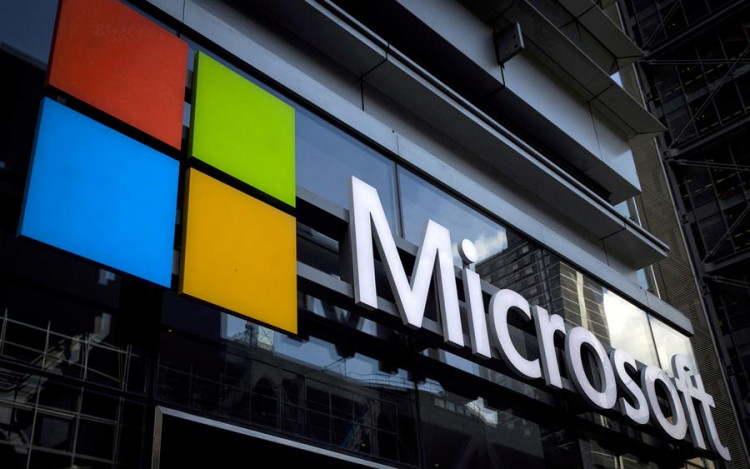During a day when U.S. stocks fell across the board due to the "mini non-farm" stimulus igniting aggressive interest rate hike expectations from the Federal Reserve, Microsoft stood its ground, rising by over 0.9% in a two-day streak to a high since June 16. This left Microsoft as the only stock in the Dow Jones Index to experience an uptick. Microsoft's stock has risen 42% since the start of the year to $341.27.
So, why didn't Microsoft fall?
According to a recent report from Morgan Stanley analyst Keith Weiss, Microsoft has become their top pick among large software companies. Weiss believes artificial intelligence (AI) will fuel Microsoft's ascent, making it the second tech titan after Apple to join the $3 trillion market cap club.
Morgan Stanley also raised Microsoft's 12-month target price from $335 to $415 while maintaining an "overweight" rating on the stock. This indicates about 21.6% room for growth from the previous day's closing price, bringing the market cap to approximately $3.1 trillion.
The analysts at Morgan Stanley believe generative AI will significantly expand the scope of automatable software business, and Microsoft is in an advantageous position within the software domain to profit from this trend.
Weiss mentioned that although Microsoft's stock has risen by 42% this year, the valuation remains reasonable. The PEG ratio (Price/Earnings to Growth ratio), which is the P/E ratio divided by the expected earnings growth rate, is still at its historical average.
Microsoft announced at its May developers conference that Windows Copilot, built on GPT-4, would go live in June. True to its word, Copilot was fully "settled" in Windows by the end of June.
Given that Windows Copilot is built on the same foundation as Bing Chat, Microsoft allows developers to extend plugins written for ChatGPT and Bing Chat to this AI assistant. This means that ChatGPT, Bing, Dynamics 365 Copilot, Microsoft 365 Copilot, and Windows Copilot can share more than 70 third-party plugins.
Data compiled by Bloomberg reveals that Morgan Stanley's target price is second only to the $450 target price issued by Redburn. Since the beginning of 2016, Morgan Stanley has consistently given Microsoft an "overweight" rating, during which the stock's gains exceeded 500%.
Over the past few years, Microsoft has invested billions of dollars in OpenAI, the AI startup behind ChatGPT, with Microsoft Azure being the exclusive cloud service provider for OpenAI, signifying a close collaboration between the two.
In the first half of this year, Microsoft has managed to outdo rivals like Google and Amazon in the AI wave set off by ChatGPT. The integration of AI into products like Bing Search has fortified Microsoft's business domain, concurrently driving steady growth in Azure's performance.
Wedbush analyst Dan Ives noted in a Wednesday report that Microsoft's AI monetization progress has outpaced market expectations. For every $100 spent on its cloud service Azure, Microsoft is expected to spend $35 to $40 on AI. Ives suggested that Microsoft's "monetization opportunity" in the AI field has arrived earlier than anticipated.
Ives further expressed that ChatGPT could be Microsoft's "next growth point" and will help drive stock price appreciation. He anticipates that the company could reach a $3 trillion market cap by early 2024. His rating for Microsoft is "outperform," with a target price of $375.
However, compared to the $3 trillion market cap target, Ives' $375 target price for Microsoft might seem conservative. With a current price of $338, the stock price needs to reach $403.47 to touch the threshold of a $3 trillion market cap.
A recent FactSet survey of 51 analysts revealed that 43 analysts rated Microsoft as "buy," seven as "hold," and one as "sell." Yet, only three firms' analysts anticipate that Microsoft's market cap will breach the $3 trillion mark next year.




